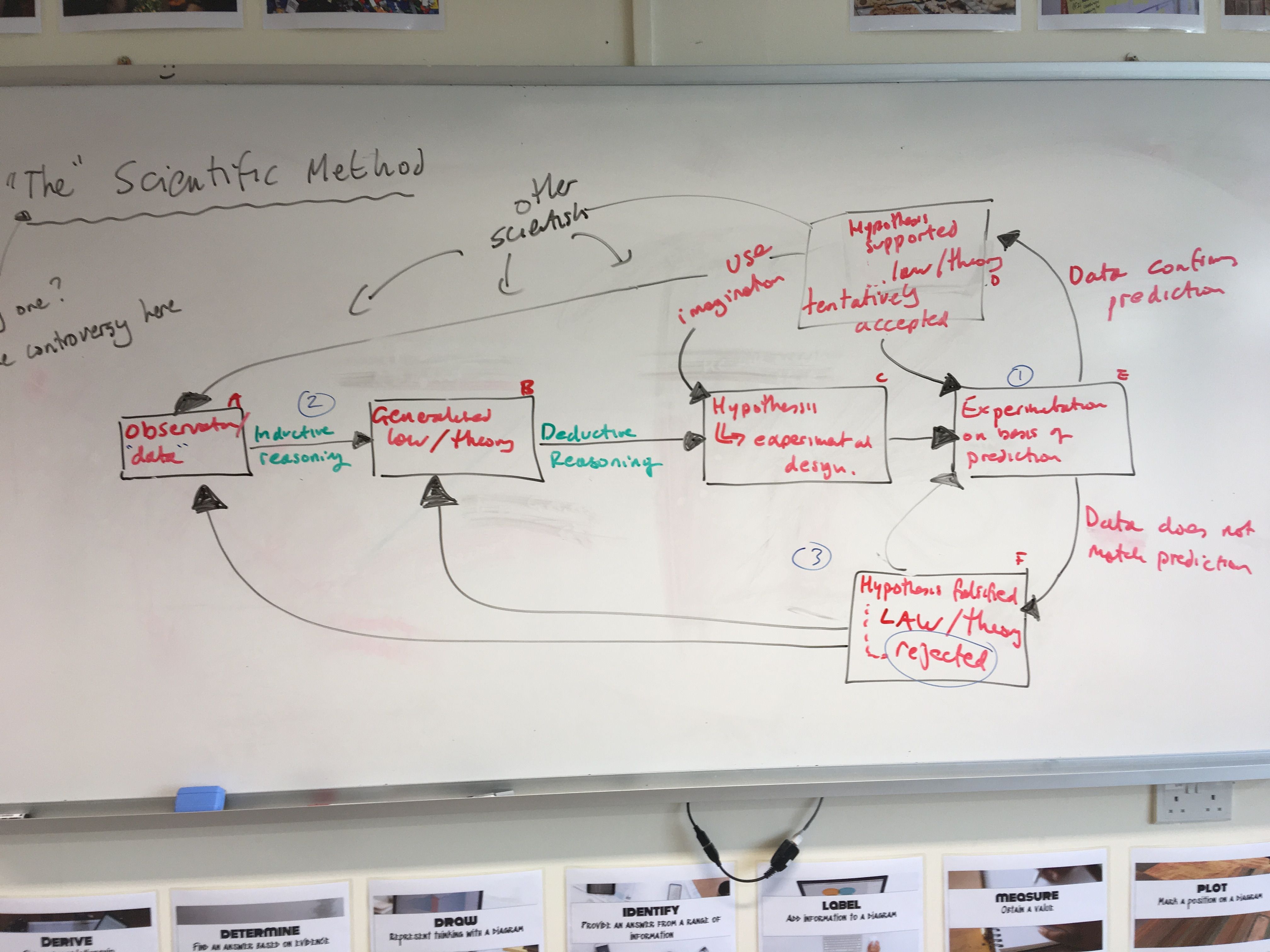The Scientific Method is a topic of great controversy, with many many versions of it floating around on the internet, some looped endless cycles suggesting that we will never have a definitive answer, and others linear processes that arrive at a ‘scientific truth’. As a class, we wholly agreed that the Scientific Method would be looped and endless only ever getting us closer to the ‘truth’ and developed this diagram:
To summarise our thought process we decided that after observing data we had to use inductive reasoning to develop a general law or theory that would fit the data and then from this law, we would deduce a hypothesis and design an experiment to test our theory/ general law. After conducting an experiment is when the cycle loops back to various places on our diagram; if the data given by our experiment does not support our law/theory then we are presented with 3 options; to repeat our experiment as it is and ensure the reliability of our findings. Or we reject the law/ theory and hypothesis and develop new ones to continue the cycle with. On the other hand, if our data supports our theory/law we are once again presented with a variety of options; we can once again repeat the cycle to confirm our findings or simply repeat the stages of experimentation and developing hypotheses. Or we can publish/ show our findings to other scientists for a fresh pair of eyes on the topic so that they may repeat the cycle or check our conclusions/ methods and help increases the accuracy of our results.
This endless cycle concept proves controversial because it suggests that science will never arrive at the actual answer but in fact, we may never know if we have arrived at the correct answer or not because there is so much of our world and universe that we simply know nothing about and haven’t discovered yet. As we will never know for sure if our answer is the truth, a repetitive process is required as if as long as we are actively trying to falsify the law/ theory and failing then we can be more certain of its value and claim to truth than in a linear process where whether or not the data fits after that one initial test determines its truthfulness.


